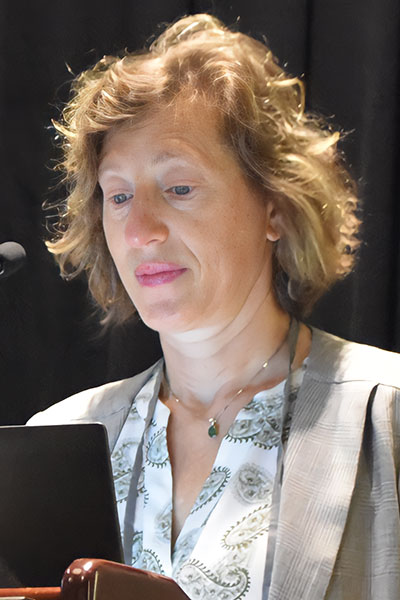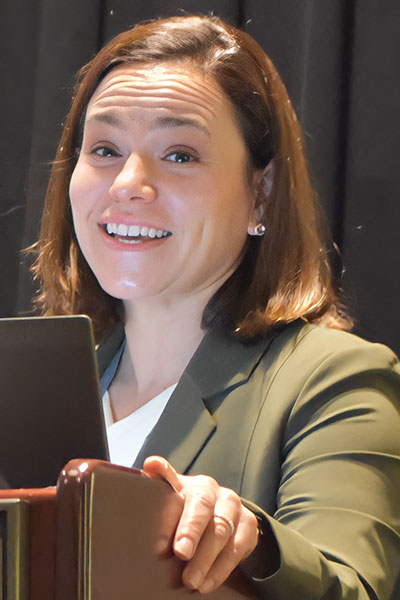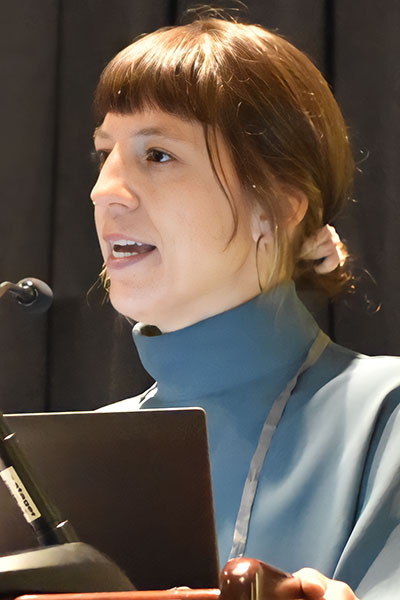
During public health emergencies, the needs of patients may exceed available resources. Crisis standards of care (CSC) describe a system to allocate scarce life-prolonging resources, such as mechanical ventilators, based on a patient’s likelihood to survive.
On Tuesday, panelists in Pitfalls in Determining Prognosis in Crisis Standards of Care debated the use of physiologic scoring systems, such as Sequential Organ Failure Assessment (SOFA), to identify patients who are likely to benefit from those resources.
Panel Moderator and Session Chair Kelly Michelson, MD, MPH, said when allocating scarce resources, ethical principles come into play—principles such as maximizing benefit for the most people, treating people the same, rewarding instrumental value, and supporting the worst off. Dr. Michelson is director of the Center for Bioethics and Medical Humanities; Julia and David Uihlein Professor of Bioethics and Medical Humanities; and chief ethics officer, Institute for Augmented Health in Medicine, at Northwestern University Feinberg School of Medicine.
“Many people have argued that we need to create a process that layers these approaches and not just focuses on one over another,” Dr. Michelson said. Using physiologic scoring systems is one such method of allocation.
Chenell Donadee, MD, assistant professor of medicine and senior medical director of the ICU Service Center at the University of Pittsburgh School of Medicine, took the “pro” side of the debate and supported the use of physiologic scoring systems as part of CSC.

She made four points to support her argument: these systems are practical and consistent, they are evidence based, they’re ethically defendable, and they meet a legal standard of care.
In her evidence argument, she provided several examples to support the use of scoring systems, including a community-based study in Maryland and a study conducted in Miami, FL, during the pandemic. During a review, she came across a 2014 statement from CHEST about allocation and crises supporting the idea that when there is some evidence for a system, but it’s not ideal evidence, using that system is still better than utilizing an option with no supporting evidence at all.
“I think, especially in an area where we’re trying to earn public trust and get everyone on board with something, that some evidence is better than no evidence,” Dr. Donadee said.

Randy Wax, MD, MEd, FCCM, associate professor in the department of critical care medicine at Queen’s University and medical director of academic affairs at Lakeridge Health, took the “con” side of the debate.
The health care field learned many lessons during both H1N1 and COVID, he said, many of which revolved around inaccurate mortality predictions, problems with the ability to discriminate between who would benefit from scarce resources and who wouldn’t, incomplete data, and the availability of more robust tools based on new technology.
“In a pandemic, if you get hospitals cooperating and using software scoring systems, you can very quickly … look for patterns and develop new scoring systems that are relevant to the disease you’re dealing with,” Dr. Wax said.

Naomi George, MD, MPH, assistant professor from the department of emergency medicine in the division of critical care at the University of New Mexico School of Medicine, took the “maybe” position. She started off by saying unequivocally that CSC is an unmitigated failure of implementation, and has caused patients, providers, and communities to suffer.
But the failure can be improved, she said. New data and other types of scoring systems exist to help score patients more accurately. A third party or arbitrator could use scoring to ease the pressure on providers by taking on some of the stressful decisions around allocation that can contribute to burnout.
Regionalizing prognostic scores by matching them to the level of capacity of the facility would help address the CSC issues in the community, Dr. George said.
“Prognostic scores are a maybe if we can radically reconfigure them, if they didn’t stop at SOFA, and if we could make them a lot more sophisticated before the next surge happens,” she concluded.



